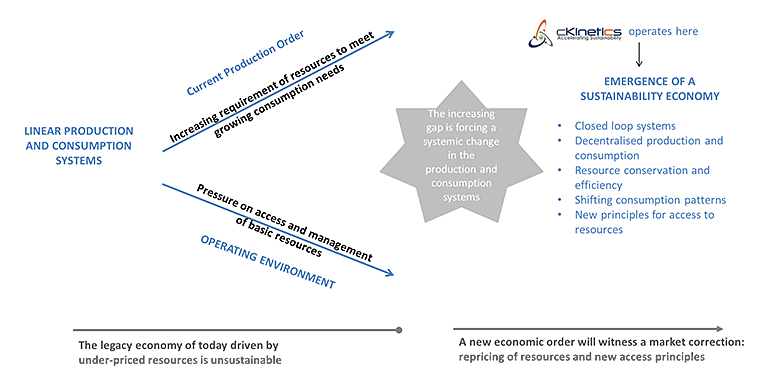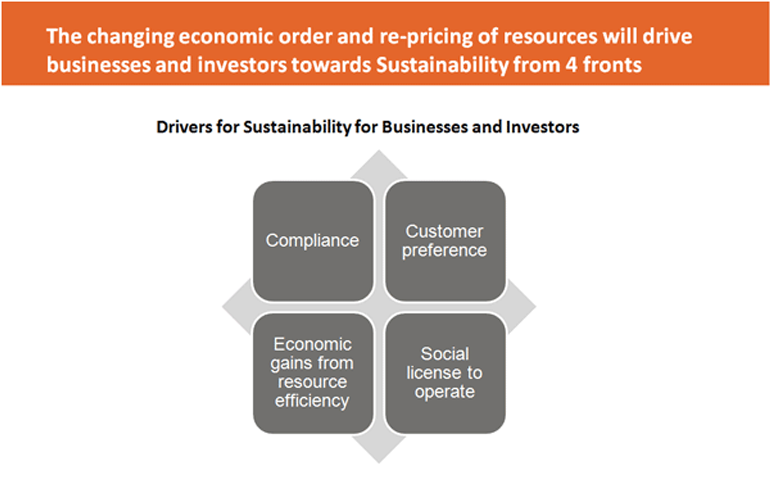
Our Belief: New Economic Order
Over the course of last decade, a global impetus has emerged on the need to manage the global resource footprint to attempt containment of climatic changes otherwise expected to adversely impact the earth’s habitat in the next several decades.
In our belief, this impetus is inevitable given that the current economic order is not sustainable.
Our Vision, Mission and Operating Principles are born out of our firm belief that we are in the midst of a changing economic order that will necessitate the emergence of a Sustainability Economy.

While this wide-felt need has led to attempts to create several frameworks for a global regime, true global consensus has not matured so far primarily due to the differing strategic imperatives of the various countries. The root of the challenge lies in the development goals and how that relates to the current growth stage and the future growth needs of different countries round the globe.
Emerging countries need to grow at rapid rates to bring their populations out of poverty (A country like India for example, needs to pursue 8-10% a year to bring its 400+million population out of poverty). This means development of infrastructure (energy, transportation, etc.) as well as increased consumption: all of which mean greater natural resource utilization, that too at a growing rate.
To complicate matters further, basic natural resources (air, water, access to minerals, etc) are under-priced causing a behavioral pattern leading towards its overuse and/or misuse.
And it is this ‘growth paradox’ which shapes the challenge for global policy makers in carving a global regime: be it for energy, water or any other resource- How can development and economic growth continue while at the same time transitioning towards more efficient resource usage?
Solving the paradox is where the opportunity for wealth creation exists
Solving the paradox requires a more holistic understanding of key dynamics in the current situation:

Connecting these dots needs an agency that works with various stakeholders, both at policy and market level, to architect solutions to facilitate mainstreaming of resource efficient economies.
cKinetics vies to play the role of such an agency through its innovation and capital offerings. cKinetics looks to address the various facets of the resource challenge and shape up market-based closed-loop solutions to ensure a more sustainable world.